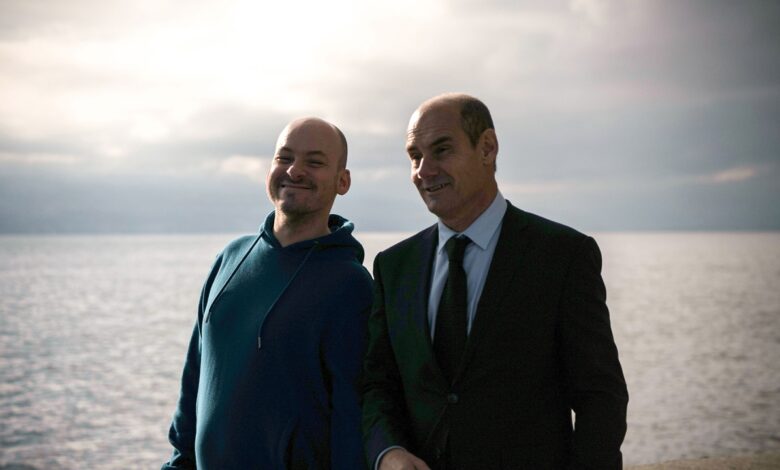Review Presque – Review on FilmTotaal


Director: Bernard Campan, Alexandre Jollien | Screenplay: Hélène Grémillon, Bernard Campan, Alexandre Jollien | To emit: Bernard Campan (Louis Caretti), Alexandre Jollien (Igor Parat), Tiphaine Daviot (Cathy), Julie-Anne Roth (Nicole), La Castou (Igors moeder), others | Time to play: 92 minutes | Year: 2021
When it arises in a meeting at a funeral home that the body of a deceased person has to be transferred from Lausanne, Switzerland, to the south of France, the director Louis immediately stands up. Such a repatriation is not part of his duties and his schedule is packed, but he immediately dismisses the objections of his employees: “I can certainly drive a hearse.” Although he has a personal reason, Louis’s main motivation seems to be the ride itself. He never talks to himself out loud, but it all shows that he enjoys being alone for a day.
Not incomprehensible. Because although he is good at his job, much of it consists of contact with dying and surviving family members. That requires some tact and preferably as little of his own personality as possible. It is typical, for example, for him to be asked twice if he believes in God and for him to give a different answer each time, depending on how his interlocutor thinks.
However, he is not allowed to be alone, for Louis is barely on his way when it turns out that the hearse has a stowaway on board: Igor, a disabled man who has shown above-average interest in Louis since a car accident a few years ago. days before. That interest isn’t exactly mutual, but because the grumpy undertaker isn’t entirely ruthless, he accepts his passenger with mild reluctance.
So much for the rather conventional setup of what will turn out to be a rather conventional film. it is not difficult to enter press to find traces of movies like the eighth day, Me too even rain man. A scene in which the two center backs manage to act on a traffic ticket also seems to have been copied very well from untouchable. and yet know press from time to time to find a slightly different approach to a story that seems to have been told often enough.
This is largely due to the character of Igor, who, like his performer (also co-director and co-writer) Alexandre Jollien, was born with cerebral palsy. This manifests itself in poor motor coordination and speech problems, but that doesn’t mean he’s retarded. Because of his excessive interest in philosophy (also inherited from his interpreter) he shakes off the necessary wisdom. Although he can’t get a cup of coffee out of a machine without making a mess, he can tell you all about Nietzsche, Spinoza and Descartes.
That makes for an interesting reversal of the dynamic that is common in these kinds of movies. In press in fact, it is the ‘normal’ protagonist who lives more in the here and now, while his unusual counterpart does not fully represent childish innocence. Rather, he is a penthouse academic who is somewhat alienated from the world, though he is not averse to human contact. Meanwhile, Igor struggles with some form of fear of contamination, but is self-aware enough to recognize his irrationality and even describe it with an unerring metaphor.
It is especially admirable that Igor is not only there to show Louis a brighter side of life, but that he is also undergoing some development himself. It’s also nice that almost everyone in the movie treats Igor politely, rather than teasing him or treating him like a little kid. At a bachelor party, a group of women seem to be more surprised by Louis’s profession than by Igor’s disability.
The other side of all that harmony is that everything behaves quite well. A little more friction between the two centre-backs would have been good and would have benefited the final feel-good factor. Louis is more concerned with Igor’s unplanned presence than his disability, but he never really gets in the way. The only time Igor really jeopardizes his work comes from extremely forced writing.
Taking into account the premise (two opposites, one of them disabled, on the way with a corpse) it is striking that press it’s pleasantly subdued, while it could have provided plenty of cheesy scenes as well. Even a scene with a prostitute is rendered with surprising taste. press therefore, he looks for the connection with well-known French films to feel good as untouchable, the bellier family in outside the standards, which is probably not a coincidence that these are people with disabilities. You can find something about it, but as long as these movies contribute to a greater acceptance of people with disabilities, it’s probably unnecessary cynicism.